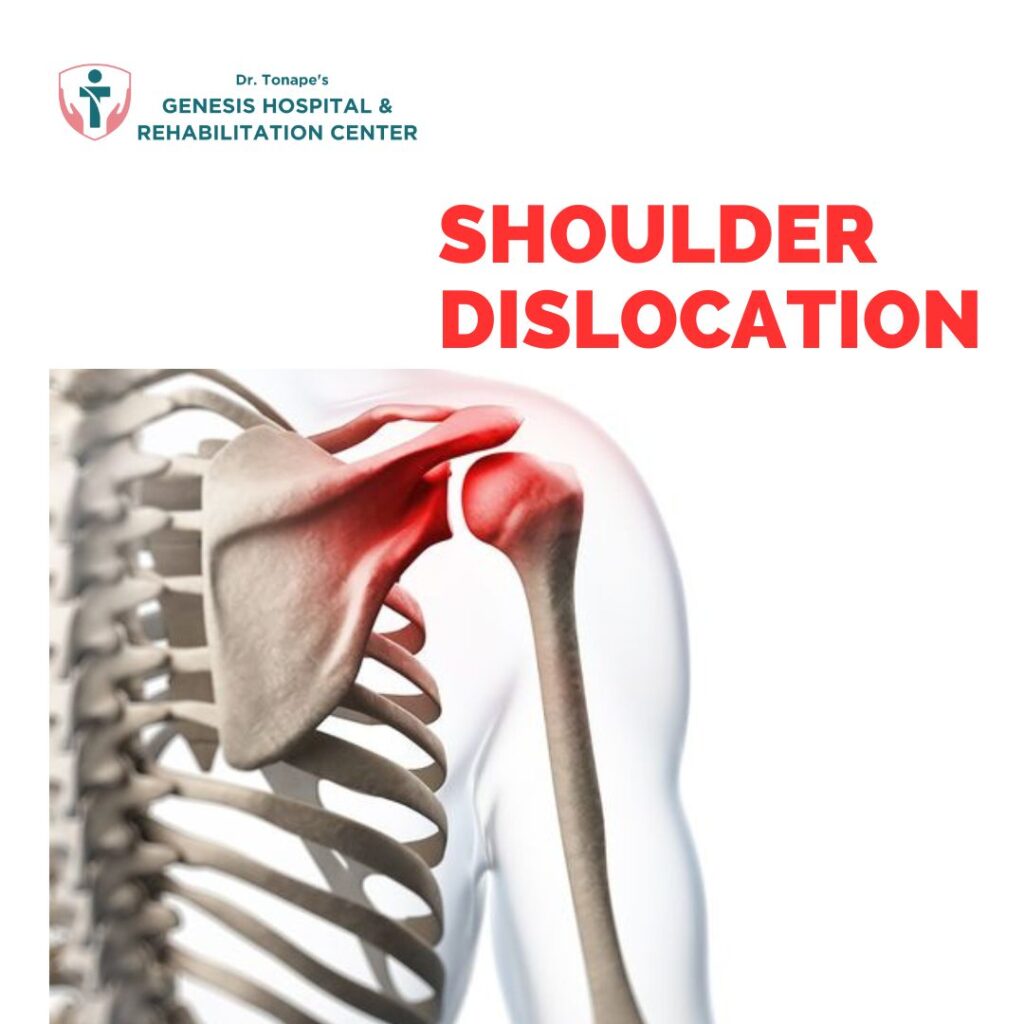The shoulder is one of the most flexible and mobile joints in the human body, allowing us to perform a wide range of movements. However, this mobility also makes the shoulder particularly vulnerable to injuries, especially dislocations. A shoulder dislocation occurs when the upper arm bone (humerus) pops out of the socket (glenoid) of the shoulder blade. This painful condition requires immediate medical attention, and if you are dealing with such an injury, consulting an experienced Orthopedic surgeon in Pimpri Chinchwad is essential for proper diagnosis and treatment.
What Causes a Shoulder Dislocation?
Shoulder dislocations are usually the result of a sudden impact or forceful movement. Some common causes include:
-
Sports Injuries: Contact sports like football, hockey, and basketball often lead to shoulder dislocations.
-
Falls: Falling onto an outstretched arm or directly onto the shoulder can easily cause the joint to dislocate.
-
Accidents: Car accidents and workplace injuries are other common sources of trauma leading to shoulder dislocations.
-
Seizures or Electric Shock: These can cause powerful muscle contractions that force the shoulder out of place.
In areas like Pimpri, Chinchwad, and nearby industrial hubs, workplace injuries are a frequent cause, making it crucial to have access to a reliable Orthopedic surgeon in Pimpri Chinchwad for immediate care.
Symptoms of a Dislocated Shoulder
A dislocated shoulder is usually easy to recognize because of its obvious symptoms. Common signs include:
-
Severe Shoulder Pain: Intense pain immediately after the injury.
-
Visible Deformity: The shoulder may appear visibly out of place.
-
Swelling and Bruising: These occur around the shoulder area after the dislocation.
-
Limited Mobility: Difficulty or inability to move the arm.
-
Numbness and Weakness: These may affect the arm, neck, and even hand, indicating nerve involvement.
If you experience any of these symptoms, you must seek help from a skilled Orthopedic surgeon in Pimpri Chinchwad to prevent further complications like nerve or blood vessel damage.
Types of Shoulder Dislocations
There are different types of shoulder dislocations depending on the direction in which the bone moves:
-
Anterior Dislocation: The most common type, where the arm bone moves forward out of the socket.
-
Posterior Dislocation: Less common and usually caused by seizures or electric shocks.
-
Inferior Dislocation: Rare and occurs when the arm is forced downward.
Each type requires a different approach to treatment, so consulting an expert Orthopedic surgeon in Pimpri Chinchwad is key to receiving personalized care.
Diagnosing a Shoulder Dislocation
Diagnosis typically involves a physical examination and imaging tests. Your orthopedic surgeon may recommend:
-
X-rays: To confirm the dislocation and check for fractures.
-
MRI or CT scans: To assess soft tissue damage like torn ligaments, tendons, or muscles.
Quick and accurate diagnosis is critical to avoid long-term problems such as repeated dislocations or chronic shoulder instability.
Treatment Options for Shoulder Dislocation
Treatment for a dislocated shoulder usually involves several steps:
1. Closed Reduction
The first step is a procedure called closed reduction, where the doctor gently maneuvers the arm bone back into its socket. Pain relief and muscle relaxants are often used during this procedure.
2. Immobilization
After the shoulder is put back into place, the arm is usually immobilized with a sling or brace for a few weeks to allow the tissues to heal properly.
3. Physical Therapy
Once the immobilization period is over, physical therapy becomes crucial. A physiotherapist will guide you through exercises to restore strength, flexibility, and range of motion.
4. Surgery
In cases where the shoulder becomes unstable or if there are associated injuries like fractures or ligament tears, surgery may be necessary. An expert Orthopedic surgeon in Pimpri Chinchwad can perform minimally invasive arthroscopic surgery to repair damaged tissues and stabilize the shoulder.
Recovery and Rehabilitation
Recovery from a shoulder dislocation can take several weeks to months, depending on the severity of the injury and whether surgery was needed. Full rehabilitation is essential to prevent future dislocations.
Patients in Pimpri Chinchwad who stick to their rehabilitation programs and follow their surgeon’s advice often experience excellent outcomes and can return to their daily activities or sports without major limitations.
Preventing Future Shoulder Dislocations
Once you’ve had a dislocated shoulder, you are at a higher risk of it happening again. Here’s how you can minimize the chances:
-
Strengthen Shoulder Muscles: Regular exercise targeting the rotator cuff muscles can help stabilize the joint.
-
Practice Good Techniques: Whether lifting objects or playing sports, using the correct form reduces risk.
-
Protective Gear: Athletes should wear proper protective gear.
-
Avoid Risky Activities: Especially during the early recovery phase.
Consulting a knowledgeable Orthopedic surgeon in Pimpri Chinchwad can help you design a personalized plan for injury prevention.
Final Thoughts
A shoulder dislocation is a painful and serious injury that needs immediate professional attention. Ignoring the symptoms or attempting to “pop” the shoulder back into place yourself can lead to severe complications. Whether it’s your first dislocation or a recurring issue, seeking prompt care from a trusted Orthopedic surgeon in Pimpri Chinchwad ensures that you receive the best possible treatment and guidance for a safe and complete recovery.
If you or a loved one are dealing with shoulder pain or instability, don’t hesitate — expert orthopedic help is available close to home in Pimpri Chinchwad. Learn about Shoulder Dislocation: Causes, Symptoms, and Treatment. Consult a skilled Orthopedic surgeon in Pimpri Chinchwad

